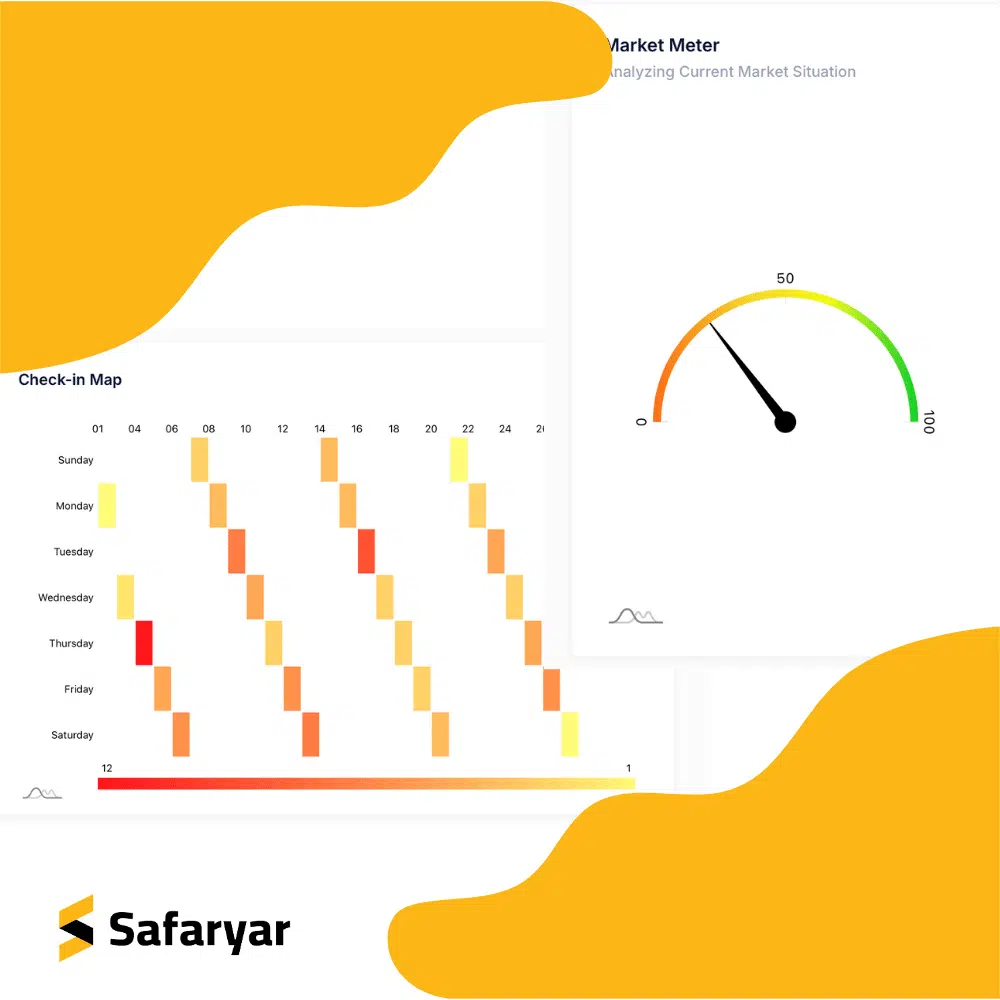Travel technology is revolutionizing how we explore and experience the world. From booking flights to navigating new destinations, tech plays a crucial role.
For travel nurses, understanding travel apps and travel technology is essential. It enhances their ability to deliver healthcare effectively across various locations.
In this article, we will explore the rise of travel technology. We will discuss the necessary technology skills needed for travel nurses and the impact of travel apps.

Table of Contents
Travel technology is a broad term. It encompasses everything from mobile apps that help us plan our trips, to advanced systems that airlines use for booking and managing flights.
But it’s not just about convenience. Technology is also helping to make travel more sustainable, and it’s opening up new possibilities for personalized experiences.
For travel professionals, including travel nurses, understanding and leveraging technology is becoming increasingly important. It’s not just about knowing how to use the latest travel apps, but also about understanding the broader trends and how they’re shaping the industry.
In this article, we’ll delve into the rise of travel technology, exploring its impact on the industry, the necessary technology skills for travel nurses, and the role of travel apps. We’ll also look ahead to the future, considering how emerging technologies might further transform the travel experience.
The Evolution of Travel Technology
Travel technology has undergone remarkable changes over the years. It began with the simple compass and has evolved into complex algorithms that personalize our travel experiences. Each advancement has brought new opportunities, challenges, and efficiencies.

In the early days, travel depended heavily on physical maps and compasses. Travelers relied on these essential tools to navigate unfamiliar territories. The introduction of cars, planes, and trains transformed how we traveled, but technological innovation continued.
Digitalization paved the way for electronic tickets and online check-ins, revolutionizing air travel. Booking a trip became easier and more accessible to the masses as travel agencies moved online.
The advent of mobile technology elevated travel to new heights. Smartphones became indispensable, offering maps, guides, and instant translations at our fingertips. Mobile apps transformed how we plan, manage, and enjoy our travels, making every aspect more streamlined and user-friendly.
From Maps to Apps: A Historical Perspective
Travel technology has come a long way from its humble beginnings. In ancient times, maps were precious tools, handmade and often inaccurate by today’s standards. Travelers relied on them to explore new lands, despite inherent inaccuracies and challenges.
The 20th century saw the advent of printed maps, making navigation more accurate and widespread. However, travelers still needed to carry bulky atlases and guides.
The shift from paper maps to digital maps marked a turning point. With the invention of GPS, accuracy and ease of navigation improved significantly. Today, digital maps and GPS software are accessible through mobile apps, allowing travelers to explore new destinations effortlessly.
In recent years, travel apps have dominated the scene. They integrate maps with real-time data, providing features like traffic updates and personalized recommendations. These advancements signify not only technological progress but also an enhanced travel experience.
The Role of Mobile Technology in Modern Travel
Mobile technology plays a pivotal role in modern travel. Smartphones and tablets have revolutionized how we plan, navigate, and enjoy our journeys. From booking to exploring, every stage of the travel process benefits from mobile innovations.

The convenience of travel apps cannot be overstated. They offer everything from flight bookings and hotel reservations to dining recommendations at the tap of a finger. Travelers now plan entire trips from their devices, reducing the need for physical documentation.
Furthermore, mobile technology enhances cultural experiences. Apps provide instant language translations, making interactions smoother for international travelers. They also offer insights into local customs and attractions, enriching our understanding of new destinations.
Another significant aspect of mobile technology is real-time updates. Travelers receive timely notifications on flight status, gate changes, and weather conditions, ensuring a smoother experience. This constant connectivity streamlines communication, planning, and navigation, making travel more efficient and enjoyable.
Essential Travel Technology Skills for Travel Nurses
Travel nurses are increasingly reliant on technology to perform their duties effectively. As they move from one location to another, technology ensures seamless healthcare delivery and efficient practice. Understanding and utilizing technology is essential for their day-to-day responsibilities.
One critical skill for travel nurses is proficiency in telemedicine platforms. Telemedicine connects nurses with patients and healthcare providers from afar, bridging gaps in care. Nurses must be comfortable with video consultations and managing remote monitoring devices.
Electronic Health Records (EHR) management is another pivotal skill. Travel nurses often transition between various health systems, requiring them to quickly adapt to different EHR platforms. Ensuring secure access and proper documentation is vital for maintaining continuity of care.
Communication skills are also enhanced with technology. Travel nurses need tools that facilitate reliable information exchange with patients and other healthcare professionals. This includes using messaging platforms and secure email services for timely updates.
Finally, the ability to access information digitally is paramount. Travel nurses must quickly locate and comprehend protocols or resources specific to a patient’s care. Online databases and digital libraries are invaluable in fast-paced healthcare environments.
Telemedicine and EHR Management
Telemedicine is transforming healthcare delivery, especially for travel nurses. It allows for remote consultation and patient monitoring. Travel nurses should be adept at using telehealth platforms to communicate with patients and healthcare teams.
Electronic Health Record (EHR) management is equally crucial. Travel nurses must navigate different EHR systems efficiently. Familiarity with entering, reviewing, and updating patient records ensures continuity in care, despite geographical changes.
With telemedicine and EHR management, maintaining patient privacy is imperative. Understanding data security protocols is essential. Ensuring compliance with legal requirements, nurses uphold the confidentiality of sensitive health information.
Staying Connected: Communication and Information Access
Effective communication is a cornerstone for travel nurses. Technology enables rapid information sharing through secure messaging apps and email. Nurses can send timely updates and receive critical information with ease.
In dynamic healthcare environments, information access is crucial. Travel nurses rely on digital tools to access medical guidelines and treatment protocols. Quick access to relevant data helps in making informed decisions.
Online resources are invaluable for continuous learning. Access to medical journals and educational content keeps nurses updated on best practices. Staying informed empowers nurses to provide high-quality care, regardless of location.
The Impact of Travel Apps on Trip Planning and Execution
Travel apps have revolutionized the way we plan and execute our trips. These digital tools offer convenience and flexibility for travelers worldwide. From booking flights to discovering local attractions, apps make travel planning effortless.
One major impact of travel apps is their ability to streamline the entire journey. They consolidate crucial information into a single, accessible location. This reduces the need for physical documents and minimizes the risk of losing important travel details.
Travel apps also provide real-time updates. Travelers can receive notifications about flight changes, weather conditions, or local events. These timely alerts allow for proactive adjustments, ensuring a smoother travel experience.
Furthermore, travel apps enhance destination exploration. They offer insights into cultural landmarks, dining options, and hidden gems. With just a few taps, travelers can customize their itineraries to suit personal interests.
Consider the following benefits of travel apps:
- Ease of booking accommodations and transportation
- Access to local insights and recommendations
- Efficient management of travel documents and itineraries

Top Travel Apps for Seamless Journeys
Several travel apps have become indispensable for creating seamless journeys. These apps cater to various aspects of travel and are designed to enhance user experience.
One popular app is TripIt, known for organizing travel itineraries effortlessly. By forwarding confirmation emails, users can create detailed plans with all relevant details.
Airbnb offers unique lodging options, from local homes to cozy apartments. It provides authentic experiences and a chance to interact with local hosts.
Another essential app is Google Maps. It provides precise navigation, transit details, and information on nearby points of interest. Travelers can also download maps for offline use.
Consider exploring these notable apps:
- TripIt for itinerary management
- Airbnb for unique accommodations
- Google Maps for reliable navigation
These apps collectively ensure that travelers are informed, comfortable, and ready to explore without stress. Utilize these apps to maximize efficiency and enjoyment during your travels.
Artificial Intelligence and Personalization in Travel
Artificial intelligence (AI) is reshaping the travel landscape. It provides personalized travel experiences like never before. AI analyzes vast amounts of data to tailor services to individual preferences.
Personalization through AI enhances customer satisfaction. Travelers receive recommendations that align with their interests and behaviors. This leads to more memorable and curated experiences.
AI also improves efficiency in travel bookings. Chatbots and virtual assistants offer instant responses. They can manage bookings, answer queries, and suggest travel plans around the clock.
The application of AI goes beyond basic recommendations. It delves into understanding user needs deeply. As AI algorithms advance, travelers benefit from more insightful and predictive experiences that anticipate their desires.
AI-Powered Recommendations and Itinerary Planning
AI excels in delivering smart travel recommendations. By analyzing past behaviors and preferences, it provides suggestions tailored to each traveler. This includes accommodation choices, local attractions, and restaurants.
Smart itinerary planning is another AI feature. It considers user interests, time, and budget. Travelers receive customized schedules that maximize their visit without exhaustive manual planning.
Furthermore, AI adapts in real-time. Changes such as flight delays or weather updates prompt itinerary adjustments. This flexibility ensures a hassle-free travel experience that feels intuitive and well-organized.
The Future of Travel: Emerging Technologies to Watch
The travel industry is on the brink of a tech revolution. Emerging technologies promise to transform how we explore. These innovations bring new opportunities for seamless travel.
One standout technology is virtual reality (VR). VR allows users to explore destinations before traveling. It enhances trip planning by offering immersive previews.
Augmented reality (AR) adds a new layer to traveling. AR apps provide real-time information on historic sites. Travelers can interact with their surroundings like never before.
Blockchain technology promises secure travel transactions. It ensures transparency and reliability. This innovation enhances trust between travelers and service providers.
As these technologies advance, the travel experience becomes more intuitive. Travelers will enjoy safer, more engaging journeys. The future of travel is bright and innovation-driven.

Virtual Reality and Augmented Reality Experiences
Virtual reality offers a new way to explore destinations. It provides travelers with vivid experiences from their living rooms. Users can virtually wander through cities and landmarks.
Augmented reality enhances in-trip experiences. It overlays digital information onto the real world. This is particularly useful for museum tours and city guides.
Both VR and AR are revolutionizing travel marketing. They create engaging content that captivates potential travelers. These immersive technologies help in making informed travel decisions.
Blockchain and Secure Transactions in Travel
Blockchain technology revolutionizes secure travel transactions. It ensures all payments and reservations are transparent. This reduces fraud and increases reliability in travel services.
Trust is paramount in travel. Blockchain facilitates trust by offering decentralized records. Each transaction is verifiable and immutable.
Additionally, blockchain simplifies transactions by eliminating intermediaries. This speeds up processing times and reduces costs. It fundamentally enhances the efficiency and security of travel transactions.
Sustainable Travel Technology and Eco-Friendly Practices
Sustainability is a growing concern in the travel industry. Travelers and companies are focusing on eco-friendly alternatives. Technology plays a critical role in fostering sustainable tourism.
Eco-conscious innovations aim to reduce carbon footprints. From smart grids in hotels to fuel-efficient transport options, green travel technology is key. Travelers are increasingly choosing destinations with sustainable practices.
The rise of digital platforms supports eco-friendly travel. Apps that track carbon emissions allow travelers to offset their impact. These tools empower travelers to make conscious choices.
Companies are also adopting technology to boost sustainability. Renewable energy and waste reduction technologies are becoming standard. These efforts are transforming the industry into a greener one.
Innovations in Reducing Travel’s Environmental Footprint
The travel industry is adopting innovations to minimize its impact. Electric vehicles are a prime example. They offer a cleaner alternative for eco-conscious travelers.
In aviation, biofuels are gaining traction. Airlines are investing in these sustainable energy sources. This reduces the carbon emissions per flight.
Waste management solutions are another innovation. Smart bins and recycling technologies help reduce landfill waste. They’re increasingly found in airports and hotels worldwide.
Conclusion: Embracing the Digital Transformation in Travel
Travel technology has become deeply embedded in the travel industry. It impacts every aspect of travel, from booking to on-the-ground experiences. Embracing digital transformation is no longer optional.
Travelers now expect seamless, tech-driven experiences. Companies must adapt to remain competitive and satisfy modern demands. Innovation and agility will dictate future success in the industry.
The rapid evolution of travel technology presents challenges and opportunities. With strategic adoption, the industry can enhance customer experience and operational efficiency. This transformation lays the groundwork for a more connected travel world.
Preparing for a Tech-Driven Future in the Travel Industry
Looking ahead, the travel industry must embrace tech advancements. Companies need to invest in new tools and digital infrastructures. Staying updated with travel technology trends will be crucial for future growth.
Employees must be equipped with relevant tech skills. Continuous learning and adaptability are vital in a tech-driven environment. Upskilling ensures that professionals can navigate and leverage new technologies.
Finally, collaboration will be key. Partnerships between tech providers and travel companies can foster innovation. Together, they can craft the future of travel, making journeys more enriching for everyone involved.
Faq
What do you mean by travel technology?
Travel technology refers to the various digital tools and platforms used to facilitate and enhance the travel experience. This includes things like online booking systems, mobile apps for trip planning, digital payment methods, and technologies that provide real-time information about flights, hotels, and other travel-related services.
What is the future of travel technology?
Travel technology is evolving rapidly, with innovations like virtual and augmented reality, artificial intelligence, and blockchain transforming the industry. Personalized travel planning, seamless booking and payment, and enhanced in-trip experiences are the future.
What are the new technologies for tourism?
New technologies for tourism include virtual reality (VR) and augmented reality (AR) experiences, mobile apps for trip planning and navigation, chatbots for customer service, and Internet of Things (IoT) devices for hotel automation and smart city applications.
What is the fastest travel technology?
Hyperloop.








